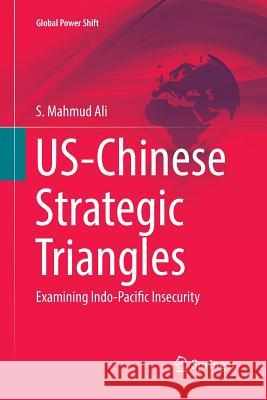Us-Chinese Strategic Triangles: Examining Indo-Pacific Insecurity » książka
topmenu
Us-Chinese Strategic Triangles: Examining Indo-Pacific Insecurity
ISBN-13: 9783319862385 / Angielski / Miękka / 2018 / 263 str.
Kategorie BISAC:
Wydawca:
Springer
Seria wydawnicza:
Język:
Angielski
ISBN-13:
9783319862385
Rok wydania:
2018
Wydanie:
Softcover Repri
Ilość stron:
263
Waga:
0.40 kg
Wymiary:
23.39 x 15.6 x 1.52
Oprawa:
Miękka
Wolumenów:
01
Dodatkowe informacje:
Wydanie ilustrowane











